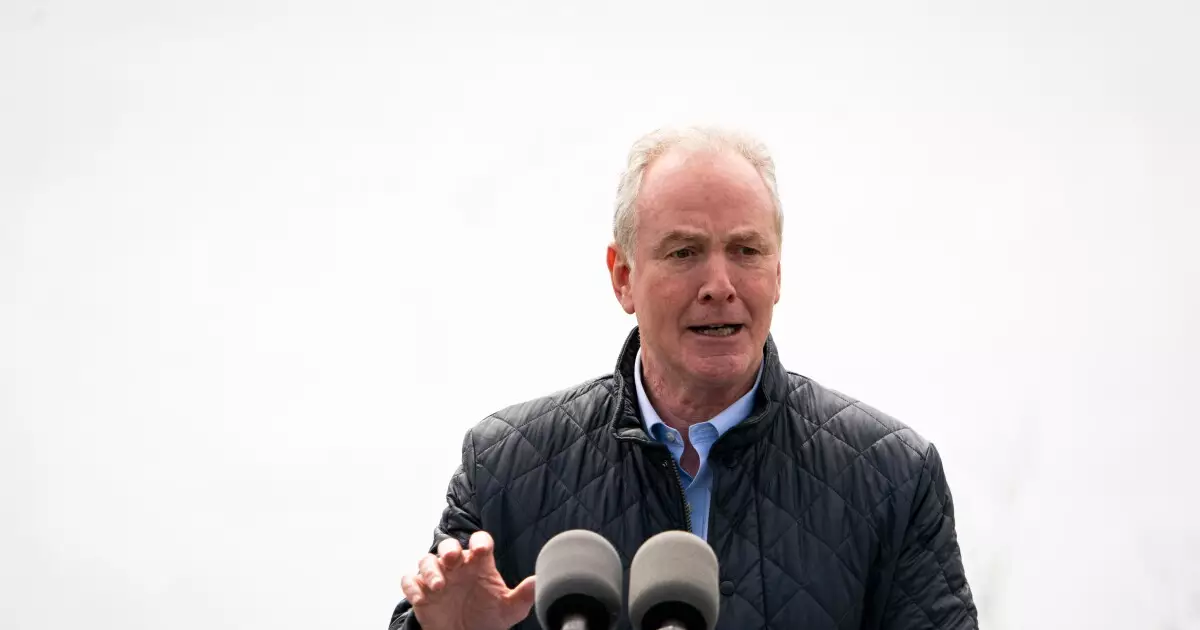In a week marked by political maneuvering and intense negotiations, Capitol Hill found itself embroiled in a series of critical decisions that will shape the legislative landscape for the coming months. The most notable outcome was the passage of a continuing resolution (CR) to keep the government functioning until March 14. However, the ongoing debate surrounding the debt ceiling looms large, threatening to overshadow future discussions and exacerbating tensions among lawmakers.
One of the week’s significant achievements among legislators was the unanimous support from Maryland’s representatives for full federal funding, aimed at replacing the Key Bridge. Senator Chris Van Hollen heralded this funding success, emphasizing its importance for Maryland’s infrastructure. This decision comes after a disabled cargo ship caused substantial damage to the bridge in March 2024, prompting the need for urgent repairs. While the usage of federal taxpayer dollars for such a project raised eyebrows, it ultimately reflected a strategic compromise, with Maryland committing to reimburse the federal government post-settlement of lawsuits and insurance adjustments.
Interestingly, the decision to repair the bridge became one of several contentions within the CR. Initially, there was considerable pushback against employing federal funds for a regional toll bridge, showcasing the ongoing ideological divide on how taxpayer money should be allocated. Nonetheless, it’s notable that this initiative showcases a collaborative spirit within Maryland’s political apparatus, despite broader disagreements elsewhere in Congress.
Washington D.C. scored a notable victory, with the CR also facilitating the transfer of the 174-acre RFK Stadium site from federal oversight to the city itself. This transition is crucial as it reflects ongoing efforts toward self-determination for the District, a point emphasized by Congresswoman Eleanor Holmes Norton. By restoring this provision, D.C. once again asserted its need for autonomy, particularly as such transfers have historically faced significant opposition from federal lawmakers.
In addition, the CR also allocated an impressive $90 million for the upcoming inauguration, enabling D.C. to adequately prepare for this significant event. This funding was achieved thanks to the concerted efforts from the city’s mayor and council, showcasing a rare collaborative moment that highlights the essential relationship between local leaders and federal lawmakers, especially in an environment characterized by divisiveness.
As celebrations for localized victories played out, a deeper and potentially more contentious issue loomed on the horizon—the prospective raising of the debt ceiling. Former President Trump’s insistence that any further negotiations on the continuing resolution include discussions on the debt ceiling sparked immediate backlash. The tension was palpable as Republicans, particularly a faction of 38 House members, rallied against any plan that would not address fiscal concerns.
This tumultuous atmosphere could hint at larger fractures within the Republican Party, as figures like Musk and Trump emerged as influential voices in the discourse, alluding to an underlying power struggle within their ranks. As calls for leadership changes circulate, Speaker Mike Johnson’s position appears increasingly tenuous, suggesting potential ramifications for congressional stability and efficacy.
Looking ahead, the 119th Congress faces a slew of challenges that go beyond immediate spending issues. Notably, the future of the Tax Cuts and Jobs Act (TCJA)—a cornerstone of Trump’s prior administration—remains uncertain. With many provisions set to expire, the Ways and Means Committee, led by Chairman Jason Smith, is poised to explore avenues for extending these cuts. Their success will be crucial as discussions on taxes, particularly concerning municipal bond deductions, continue to reverberate through the political landscape.
The complexity of these negotiations underscores not only the intricacies of federal budgetary concerns but also highlights the broader implications for state and local governance. As the CR has temporarily bridged fiscal gaps, future policymaking in Congress will need to navigate the intricate balance of party agendas, legislative priorities, and the pressing needs of constituents.
In sum, the recent developments on Capitol Hill have underscored a politics of necessity, where local victories juxtapose larger, unresolved national debates. While immediate funding successes, such as the bridge repair and D.C.’s transfer of RFK stadium, serve as important milestones, the prevailing discord over the debt ceiling and tax reforms signals that the bumpy ride is far from over. As lawmakers prepare to address these weighty issues, the interplay of ideologies and interests will surely shape the legislative narrative leading into 2024.


Leave a Reply